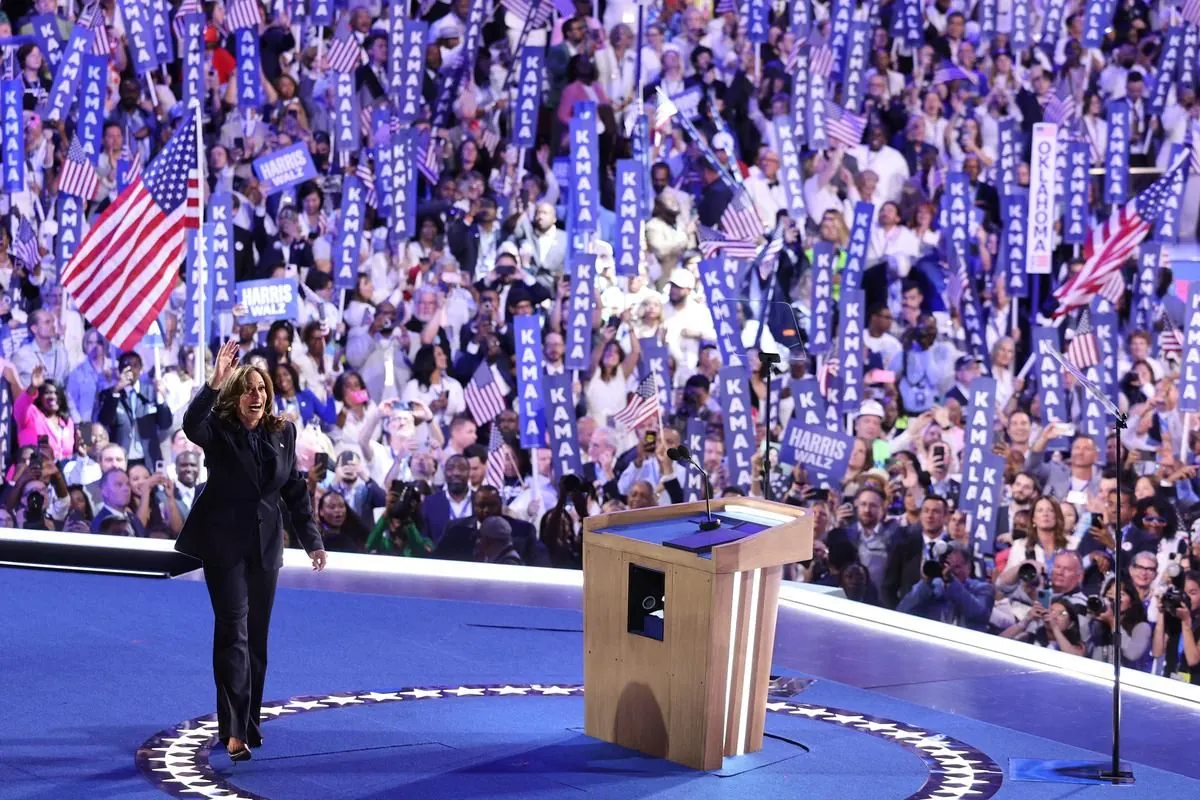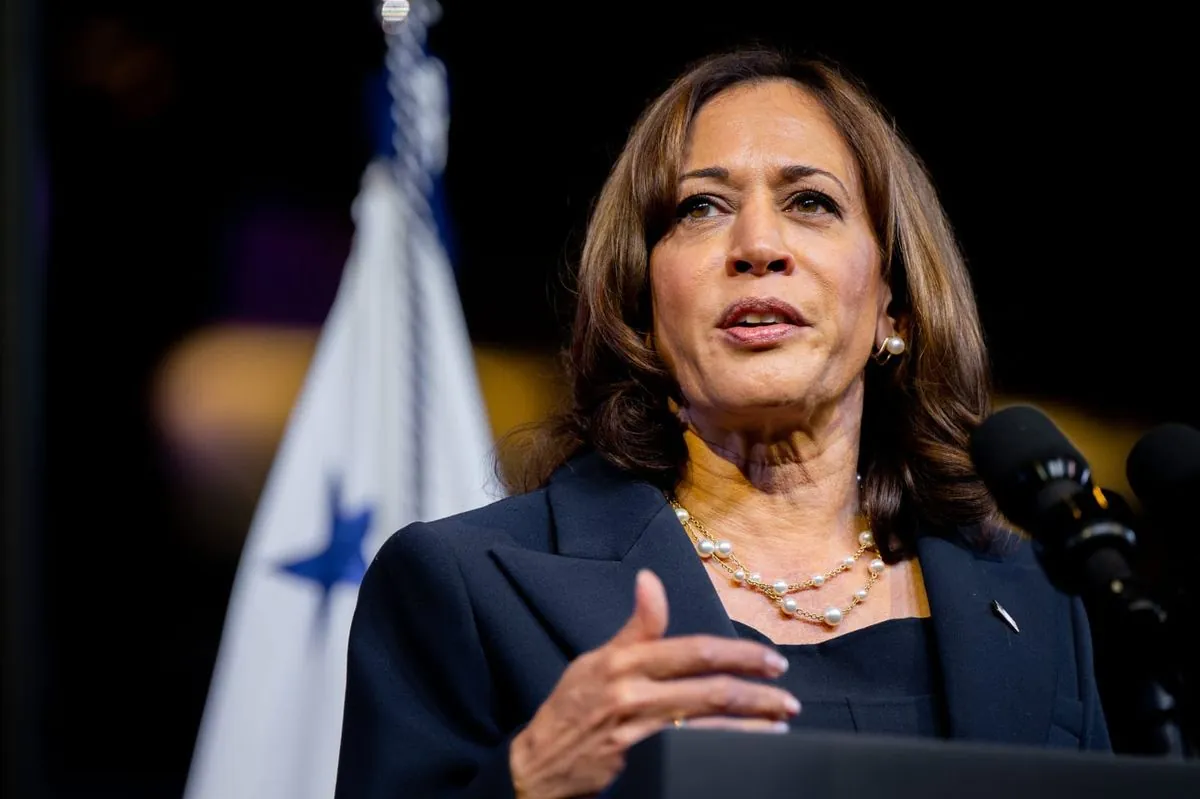Harris Clinches Democratic Nomination with Forceful Convention Speech
Vice President Kamala Harris secured the Democratic presidential nomination, delivering a powerful speech at the party's convention. She outlined her foreign policy stance and domestic agenda, drawing sharp contrasts with rival Donald Trump.

Kamala Harris has officially secured the Democratic presidential nomination, delivering a robust speech at the Democratic National Convention in Chicago. The 59-year-old Vice President outlined her vision for America's future, emphasizing foreign policy principles and domestic priorities while drawing clear distinctions from her Republican opponent, Donald Trump.
In her address at the United Center, Harris articulated her stance on international relations, pledging support for NATO and Ukraine while promising to confront Russian aggression. She stated, "In the enduring struggle between democracy and tyranny, I know where I stand and I know where the United States belongs." This declaration aligns with the historical role of NATO, established in 1949 as a military alliance to promote democratic values and collective defense.
Harris also addressed the ongoing conflict in the Middle East, calling for a resolution that ensures Israel's security while supporting Palestinian self-determination. She emphasized the need for a hostage deal and ceasefire in Gaza, demonstrating her commitment to navigating complex international issues.

On the domestic front, Harris proposed a middle-class tax cut that she claims will benefit over 100 million Americans. This stands in contrast to Trump's previous corporate tax rate reduction to 21% through the Tax Cuts and Jobs Act of 2017. Harris suggested raising the corporate tax rate to 28%, aiming to shift the tax burden.
The Vice President also highlighted her plans to protect abortion rights, expand voting rights legislation, and address housing supply issues. These policy proposals reflect the ongoing debates surrounding constitutional rights and economic challenges facing the nation.
"Just imagine Donald Trump with no guard rails."
Harris's candidacy carries historical significance, as she could become the first woman elected U.S. president if successful on November 5, 2024. This potential milestone comes more than a century after the ratification of the 19th Amendment in 1920, which granted women the right to vote in the United States.
The convention speech marked a pivotal moment for Harris, who emerged as the Democratic candidate approximately a month ago following President Joe Biden's withdrawal from the race. The event at Chicago's United Center, the largest arena by capacity in the U.S., was filled to capacity, reflecting the enthusiasm of her supporters.
Donald Trump responded to Harris's speech through posts on Truth Social, a platform he launched in February 2022. He criticized her stance, claiming she represents "Incompetence and Weakness."
As the presidential race enters its final 11 weeks, both candidates are expected to intensify their campaigns. The upcoming election could potentially mirror the historical significance of the first televised presidential debate in 1960 between John F. Kennedy and Richard Nixon, which dramatically changed the landscape of American political discourse.


































